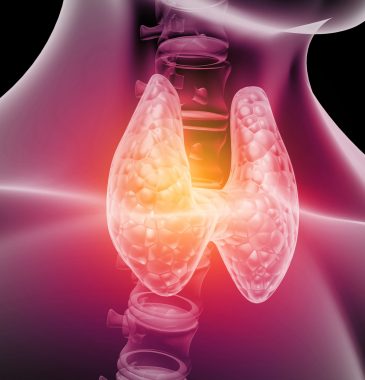Thyroid disorders

The silent epidemic
Thyroid diseases are some of the most widespread diseases in the world. Hypothyroidism, the most common type, affects about 200 million people. 1 However, it is estimated that only 20% of them receive appropriate treatment, given the fact that thyroid diseases are largely undiagnosed.
The thyroid gland is a butterfly-shaped gland in the front of the neck. Its role is to produce thyroid hormones that affect growth, development and many cellular processes in the human body. The thyroid gland uses iodine to produce the most important hormones. Therefore, regular iodine intake is important for the normal function of the thyroid gland and can be safely provided in adequate quantities through adequate food including seafood, bread and iodized salt.
2Hypothyroidism is a condition where the thyroid gland produces less hormone than usual3. Symptoms become more severe with aging and are more present in women than in men4.
Symptoms of hypothyroidism can often be poorly recognized and can be easily confused with symptoms from other conditions. Most patients complain of slow metabolism, slow heartbeat, weight gain, thicker skin, brittle hair, constipation and fatigue. 3,5,6
Once hypothyroidism is diagnosed, treatment usually involves lifelong hormone therapy.3 Merck is a leading manufacturer of synthetic thyroid hormones.
